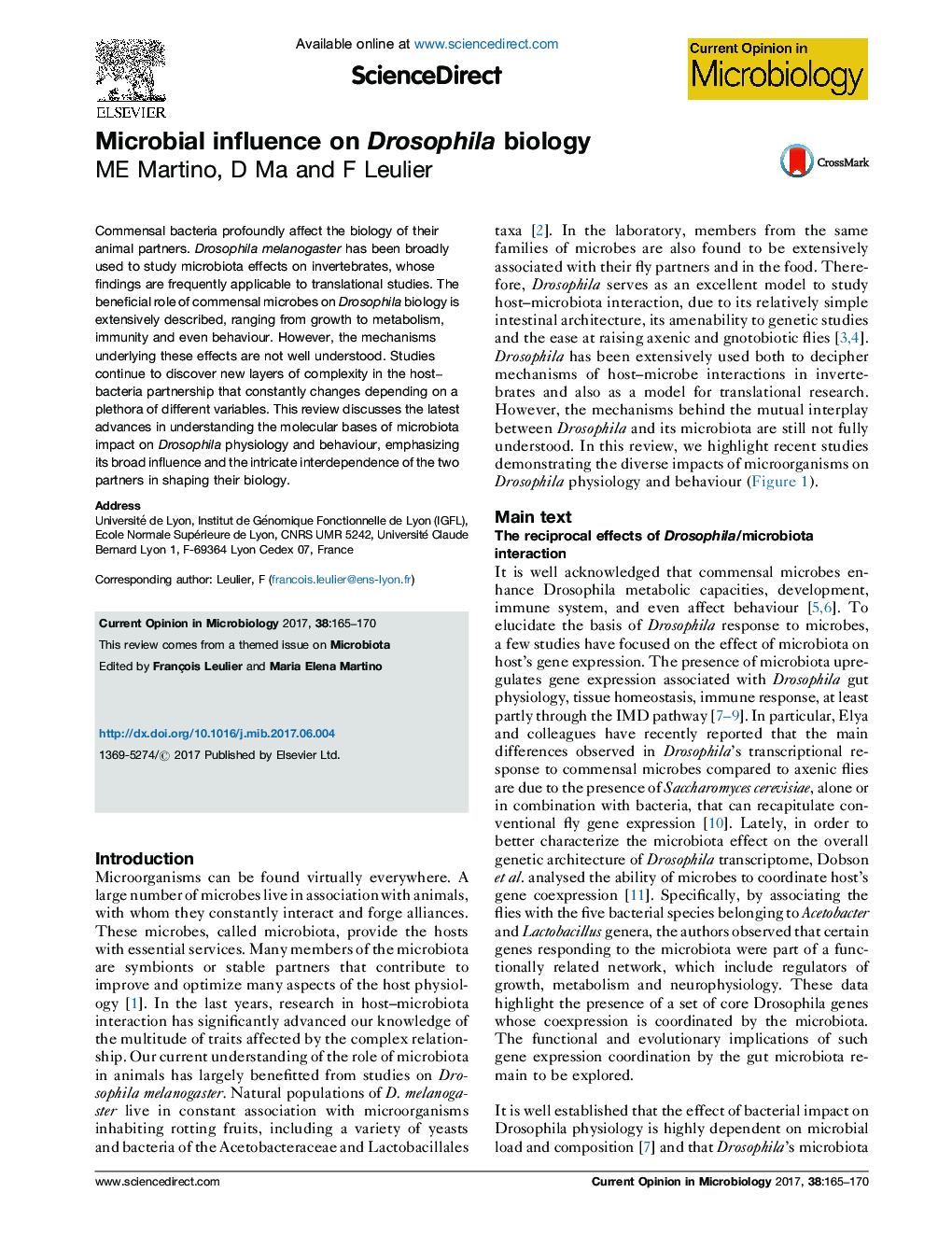| Article ID | Journal | Published Year | Pages | File Type |
|---|---|---|---|---|
| 5671708 | Current Opinion in Microbiology | 2017 | 6 Pages |
â¢Drosophila genomic background impacts microbial effect.â¢Acute commensal exposure elicits a hormetic response that mediates cytoprotection.â¢Microbial dysbiosis leads to shorter lifespan.â¢Drosophila prefers more complex microbial communities to mono-cultures.â¢Interaction between microbiota, Drosophila and nutritional environment must be further investigated.
Commensal bacteria profoundly affect the biology of their animal partners. Drosophila melanogaster has been broadly used to study microbiota effects on invertebrates, whose findings are frequently applicable to translational studies. The beneficial role of commensal microbes on Drosophila biology is extensively described, ranging from growth to metabolism, immunity and even behaviour. However, the mechanisms underlying these effects are not well understood. Studies continue to discover new layers of complexity in the host-bacteria partnership that constantly changes depending on a plethora of different variables. This review discusses the latest advances in understanding the molecular bases of microbiota impact on Drosophila physiology and behaviour, emphasizing its broad influence and the intricate interdependence of the two partners in shaping their biology.
